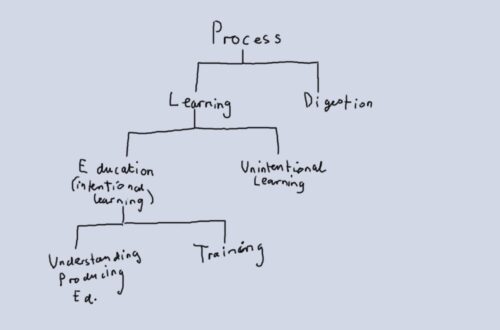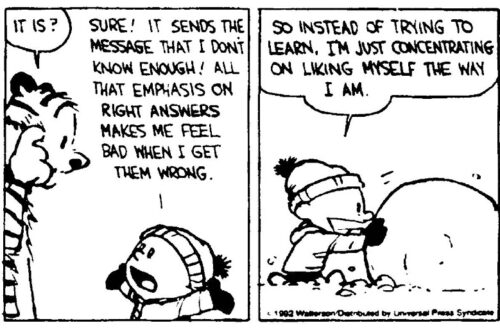Most of us think education includes both. We want our children to learn form, to have trained minds, ready for work. And, at the same time, we want them to experience life, to live out a meaningful existence. But let’s face it, we tend to lean one way or the other or we swing between the two poles. Sometimes we attempt a synthesis. But when attempting a synthesis it sometimes seems like one is trying to import an alien concept to the other side. It is like when a trail runner begins to determine his run using GPS or when a TV showing the National Geographic channel is attached to the tread mill.
Any Christian education will eschew the impulse to favor one over the other. A Christian education must perform both a knowledge task and a life task, we shape lives as much as we form concepts and measure quantity. And we do this because Christian education is done in God’s world according to God’s word.
Christian education is uniquely able to join the two–treadmill and trail–because the two are united in the knowledge of the one who made both. Whereas most educational projects divide into sciences and humanities, form and life, theory and existence, Christian education can have no fear of dealing with both at the same time. It is just as moral to accord to the truth of scripture in the science class as it is in the playground.
Those who went before us had a term for this kind of uniting knowledge. It was called theology, the “queen of the sciences” (theos = God, logos = discourse about). The reign of theology was the uniting point for all education–form and life–because God creates and governs both. And I don’t mean some abstract philosophical version of theology (despite my personal liking for study of this area). I mean knowing God personally through His Word illuminated by His Spirit. The study of scripture in the power of the Spirit is the means by which we human beings are able to know God.
Many have now completely rejected this kind of theology. We think of seminaries as mere appendages to proper places of scholarship. Study of scripture has become confined to a personal faith, for “quiet time” not for class time. Theology, in the sense I am talking about, has been replaced in the academy by religious studies, a kind of sociological, anthropological natural science of people and their rituals.
The modern project to find an alternative queen of the sciences (or the attempt to attempt flattening them all to equal status) has resulted in a string of failed monarchs. Each gets its turn – psychology, social science and now the dominance of politics. And every one fails to unite knowledge and experience (please don’t hear me saying that studying any of these things is wrong. I am only telling you not to give them a crown). Theology, the knowledge of the one who authored time and trails, was the queen of sciences for good reason: in God all things come together, all things cohere (Col 1). It is time for a restoration, to give up our pretensions to know it all and to govern ourselves, and return to the knowledge of God as the pinnacle of all we learn, and the Lord of all learners.
The prophet Hosea gives a stern warning to those who would reject the knowledge of God. Knowledge, for the prophet, was knowledge of God’s Word (the “law”): “My people are destroyed from lack of knowledge. “Because you have rejected knowledge, I also reject you as my priests; because you have ignored the law of your God, I also will ignore your children.” (Hosea 4:6). If we ignore (from the Latin ignorare meaning “to have no knowledge of”) knowledge of God, God will ignore us.
Soli Deo Gloria


